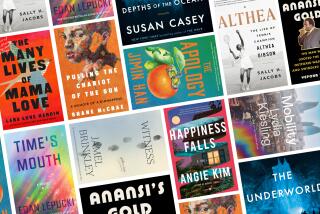A History of the English People, Paul...
A History of the English People, Paul Johnson (Harper & Row). Today’s body of knowledge about modern culture is vast enough to overwhelm even the most erudite scholar, so it’s no surprise that fewer sweeping histories of the Western World are being attempted in the 1980s. Paul Johnson makes the effort and manages to find an engaging story in his expansive subject. The history of “the offshore islanders,” he believes, is a series of common struggles, commencing in AD 410, when Rome ceased to clutch the country, and continuing today, as Britons fight yet another battle for self-renewal. Britain’s real villain, in Johnson’s eyes, isn’t Eastern or Western Europe, but the mistaken notion that happiness can be seized by holding onto an empire. Thus, as its colonies gained independence, Britain’s self-image “shrank in its own estimation, and in that of the world.” Johnson’s unusual, well argued psychohistory leads to an upbeat conclusion: “The English have not stepped down from a throne; they have left a prison. They are now more free than at any time in the last hundred years: Free to decide upon the direction in which they wish to go . . . they can now make their own unqualified choices, as a self-governing independent island people.”
Isak Dinesen: The Life of a Storyteller, Judith Thurman (St. Martin’s); Letters From Africa: 1914-1931, Isak Dinesen (University of Chicago); Out of Africa, Isak Dinesen (Vintage); Shadows on the Grass, Isak Dinesen (Vintage); Silence Will Speak, Errol Trzebinski (University of Chicago). When she sailed into Africa in 1914, Karen Blixen, a k a Isak Dinesen, was an aristocrat, author and coffee planter; she returned more than a decade later, bankrupt (with world coffee prices in decline), seriously ill and broken-hearted. Even so, she fell in love with “the dark continent” and spent the rest of her life interpreting it for mystified Europeans. Though Blixen never fully severed her ties with Europe, she was critical of the way white hunters and white landowners, served by black gun bearers and black servants, dispensed heavy doses of Christianity, medicine, education and mechanization in Africa in the 1920s and ‘30s: “We nations of Europe . . . are turning the blazing lights of our civilization into dark eyes. . . . If for long enough time we continue on this way to dazzle and blind the Africans, we may in the end bring upon them a longing for darkness.” Blixen’s life will be translated to film this winter with the release of “Out of Africa,” directed by Sydney Pollack and based, reportedly, on these five books. The winner of the 1983 American Book Award, “Isak Dinesen: The Life of a Storyteller” is a thorough biography, examining, for instance, how Blixen transcended hardships like the suicide of her father by mythologizing them, weaving them into the tapestry of her fables. “Letters From Africa: 1914-1931” primarily includes correspondence between Blixen and her mother, while “Out of Africa” is Blixen’s account of managing a coffee plantation in Kenya, though not as it was lived in a documentary sense. As Judith Thurman writes, “The serene perfection of the style, the spareness of detail, the attendance of the gods all signal that we have escaped from the gravity of practical questions and have gotten up into a purer element, one that offers less resistance to the ideal.” In “Shadows on the Grass,” Blixen offers four sketches of African life, while in “Silence Will Speak” Errol Trzebinski reconstructs an affair between Blixen and a World War I pilot, a central theme of the upcoming movie, not surprisingly.
Cocaine: A Drug and Its Social Evolution, Lester Grinspoon and James B. Bakalar. Cocaine “is being sniffed or injected more and more openly and frequently by those who can afford it as well as those who have to beg, borrow, steal, or deal to obtain it,” wrote the authors--in 1976. The accuracy of their prediction helped prompt the paperback release of this book, this time with a new chapter, “The Further Social Evolution of Cocaine,” which looks at the drug’s “new, unprecedented popularity” and at the effects of President Reagan’s crackdown on cocaine exports from South America. When a democratic regime took power in Bolivia, President Reagan gave support to an army guarding against illicit exports, bringing down the value of Bolivian currency 30% in one day. The authors argue that dangers are growing because cocaine is seen “as a relatively innocuous stimulant” by a younger, educated generation that is savvy about “the irrationality of our drug laws . . . they not only know what they want but have ideologues, social philosophers, or gurus to tell them why they should want it.” The text is lacking in color and abundant in detail, although it offers a comprehensive account for those with more than a passing interest in drug policy and the effects of abuse.
More to Read
Sign up for our Book Club newsletter
Get the latest news, events and more from the Los Angeles Times Book Club, and help us get L.A. reading and talking.
You may occasionally receive promotional content from the Los Angeles Times.




